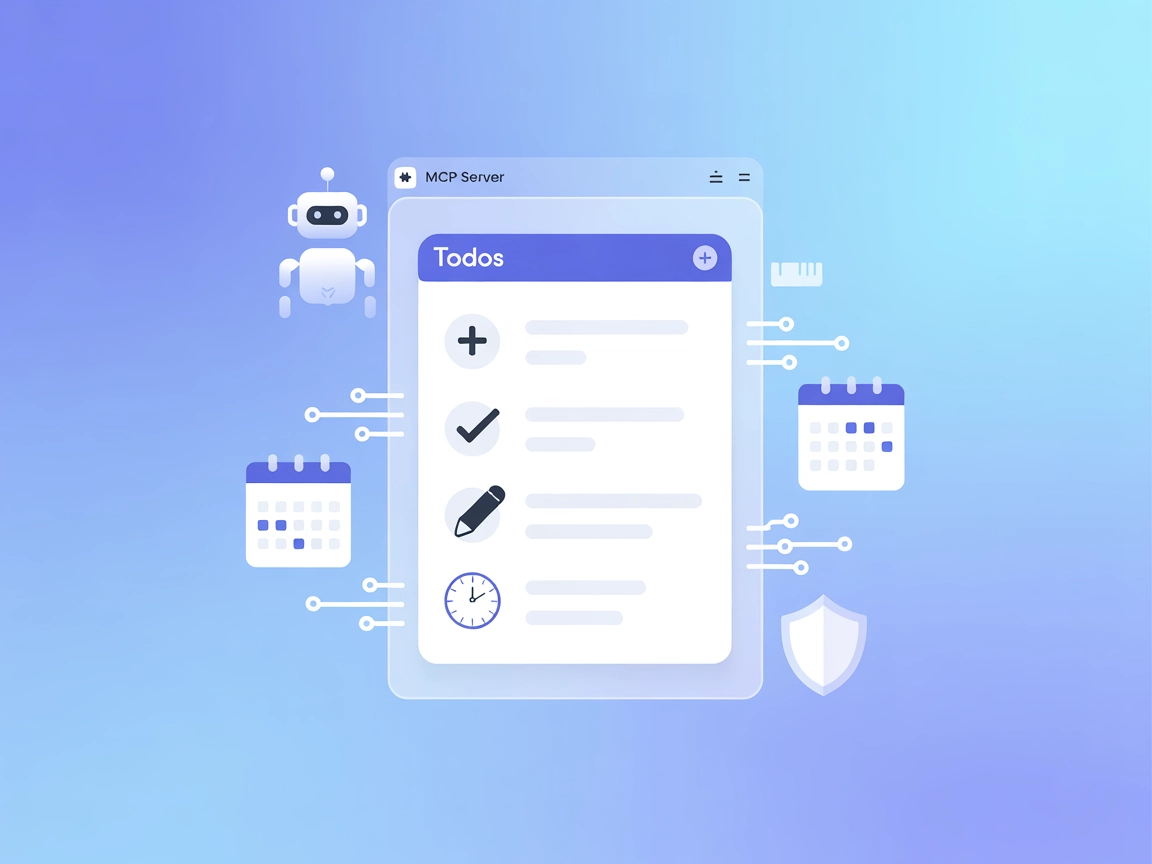
Markdownify MCP Server
Markdownify MCP Server converts various file types and web content—such as PDFs, DOCX, images, audio, and web pages—into standardized Markdown format, empowerin...

Kokoro TTS MCP Server brings natural-sounding, customizable text-to-speech to your AI applications, with support for local and cloud audio storage, ideal for accessibility, automation, and content creation.
FlowHunt provides an additional security layer between your internal systems and AI tools, giving you granular control over which tools are accessible from your MCP servers. MCP servers hosted in our infrastructure can be seamlessly integrated with FlowHunt's chatbot as well as popular AI platforms like ChatGPT, Claude, and various AI editors.
The Kokoro Text to Speech (TTS) MCP Server is a Model Context Protocol (MCP) server that enables AI assistants and clients to generate high-quality speech audio from text input. By connecting AI workflows with this server, users can convert text to .mp3 files and optionally upload them to Amazon S3 or compatible storage. Kokoro TTS leverages advanced models (via HuggingFace spaces and ONNX weights) to provide customizable voices, speeds, and languages, facilitating seamless integration of text-to-speech capabilities into development environments, chatbots, or automation pipelines. This MCP server is especially valuable for scenarios where synthesized speech is needed for accessibility, notifications, or content creation.
No explicit prompt templates are documented in the repository.
No explicit resources are documented in the repository files or README.
uv and all Kokoro model files downloaded.mcpServers object:{
"kokoro-tts-mcp": {
"command": "uv",
"args": [
"--directory",
"/path/toyourlocal/kokoro-tts-mcp",
"run",
"mcp-tts.py"
],
"env": {
"TTS_VOICE": "af_heart",
"TTS_SPEED": "1.0",
"TTS_LANGUAGE": "en-us",
"AWS_ACCESS_KEY_ID": "",
"AWS_SECRET_ACCESS_KEY": "",
"AWS_REGION": "us-east-1",
"AWS_S3_FOLDER": "mp3",
"S3_ENABLED": "true",
"MP3_FOLDER": "/path/to/mp3"
}
}
}
mcpServers section.cursor.json or equivalent config to include the Kokoro TTS MCP server.Always use environment variables to store sensitive information like AWS credentials. Example:
"env": {
"AWS_ACCESS_KEY_ID": "${AWS_ACCESS_KEY_ID}",
"AWS_SECRET_ACCESS_KEY": "${AWS_SECRET_ACCESS_KEY}",
...
}
Set these variables in your system or CI environment, never hard-code secrets in your configuration files.
Using MCP in FlowHunt
To integrate MCP servers into your FlowHunt workflow, start by adding the MCP component to your flow and connecting it to your AI agent:

Click on the MCP component to open the configuration panel. In the system MCP configuration section, insert your MCP server details using this JSON format:
{
"kokoro-tts-mcp": {
"transport": "streamable_http",
"url": "https://yourmcpserver.example/pathtothemcp/url"
}
}
Once configured, the AI agent is now able to use this MCP as a tool with access to all its functions and capabilities. Remember to change “kokoro-tts-mcp” to whatever the actual name of your MCP server is and replace the URL with your own MCP server URL.
| Section | Availability | Details/Notes |
|---|---|---|
| Overview | ✅ | Text-to-speech server for AI workflows |
| List of Prompts | ⛔ | No prompt templates found |
| List of Resources | ⛔ | No explicit MCP resources documented |
| List of Tools | ✅ | TTS, S3 upload, local file management |
| Securing API Keys | ✅ | Documented use of env vars for AWS and config |
| Sampling Support (less important in evaluation) | ⛔ | No mention of LLM sampling feature |
Kokoro TTS MCP Server is focused and practical, offering a specialized tool for text-to-speech tasks with cloud integration. It lacks prompt and resource primitives, but is open source, well-configured, and supports secure key management. Sampling and Roots support are not mentioned, limiting advanced agentic capabilities. For TTS use cases, it is robust and useful, though not as feature-rich as more generalized MCP servers.
| Has a LICENSE | ✅ (Apache-2.0) |
|---|---|
| Has at least one tool | ✅ |
| Number of Forks | 7 |
| Number of Stars | 39 |
Kokoro TTS MCP Server is a Model Context Protocol server that enables AI agents and clients to convert text input into high-quality speech audio, with options for voice, speed, language, and cloud storage. It’s ideal for adding text-to-speech to chatbots, accessibility tools, and automation workflows.
It supports customizable voices, speeds, and languages using HuggingFace models and ONNX weights. Audio can be stored locally or uploaded to Amazon S3. It’s easy to integrate into development environments, chatbots, and automation pipelines.
Never hard-code credentials in configuration files. Use environment variables to securely pass sensitive information like AWS_ACCESS_KEY_ID and AWS_SECRET_ACCESS_KEY to the Kokoro TTS MCP Server.
Use cases include accessibility solutions (speech for visually impaired users), voice notifications, content creation (voiceovers for media), conversational AI, and audio archiving for compliance.
Yes, you can add Kokoro TTS as an MCP component in your FlowHunt workflow, enabling your agents to generate audio responses and use all supported tools and configurations.
No, Kokoro TTS is focused on high-quality text-to-speech and does not provide prompt primitives or LLM sampling features.
Add natural, high-quality speech synthesis to your chatbots and automation with Kokoro TTS MCP Server. Try it in FlowHunt or connect with your own infrastructure.

Markdownify MCP Server converts various file types and web content—such as PDFs, DOCX, images, audio, and web pages—into standardized Markdown format, empowerin...

The Todos MCP Server is an open-source todo list application with Model Context Protocol (MCP) support, allowing AI assistants and chatbots to manage tasks prog...

The Heroku MCP Server bridges AI assistants with the Heroku platform, enabling automated app management, deployments, resource monitoring, and configuration via...
Cookie Consent
We use cookies to enhance your browsing experience and analyze our traffic. See our privacy policy.